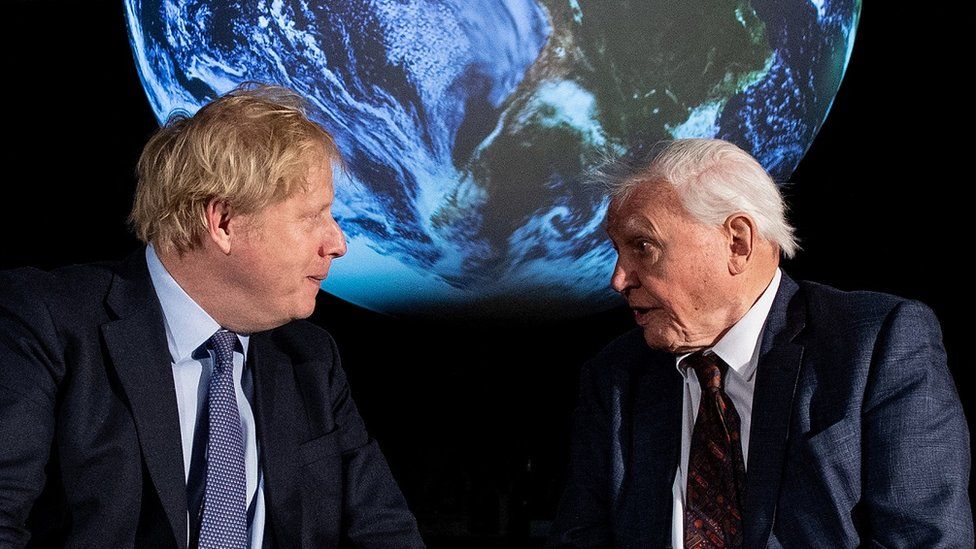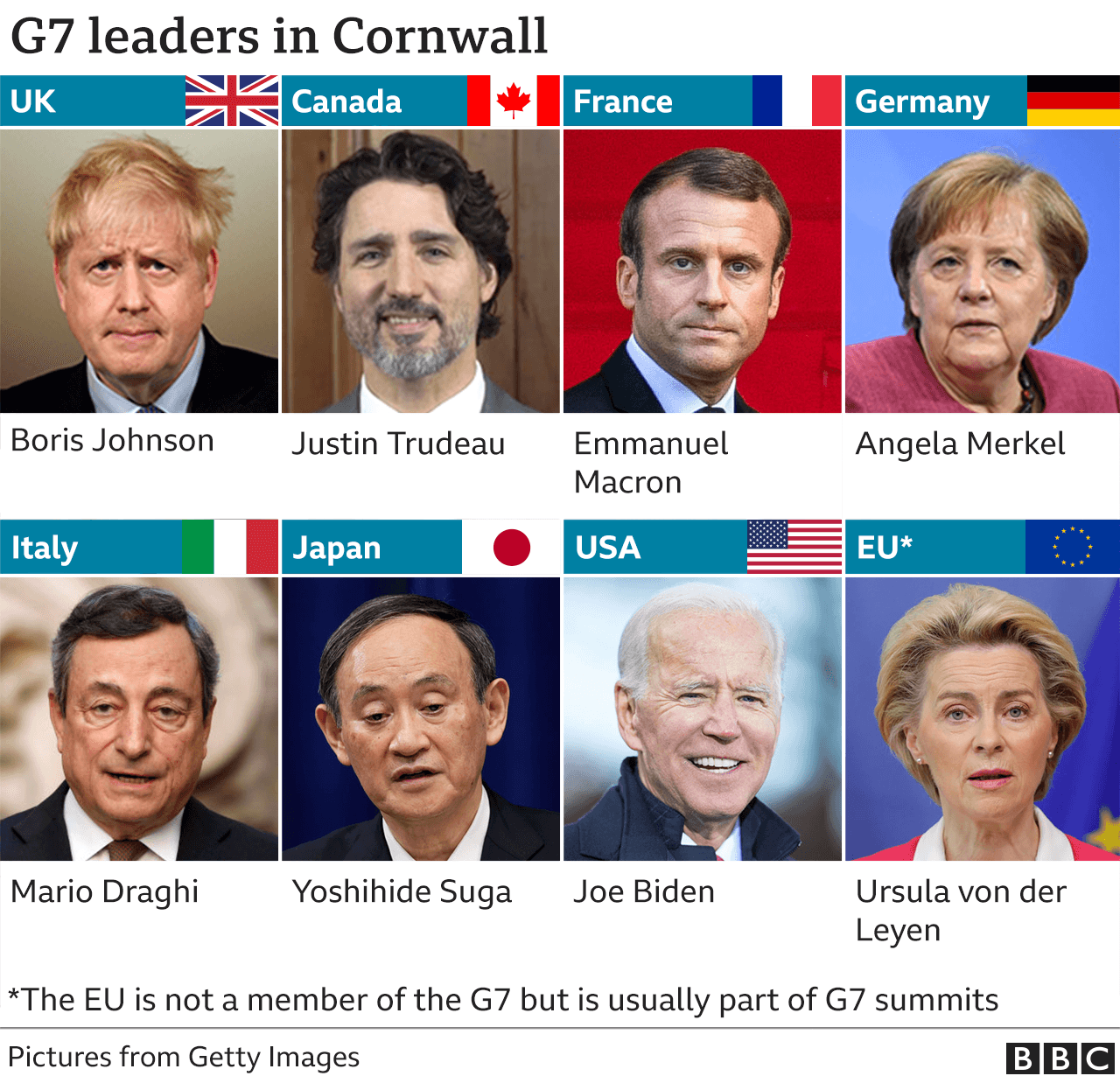Sir David warns world leaders that humans may be “on the verge of destabilising the entire planet”.

image copyrightGetty Images
G7 leaders are facing the most important decisions in human history as they seek to tackle climate change, Sir David Attenborough has said.
The naturalist will address world leaders gathered in Cornwall on Sunday as they set out plans to cut carbon emissions and restore biodiversity.
Ahead of the meeting, Sir David warned that humans could be “on the verge of destabilising the entire planet”.
Climate change is one of the key themes at the three-day summit in Carbis Bay.
The UK has already surpassed that commitment, previously promising to cut emissions by the equivalent of 58% on 2010 levels.
On the final day of the summit, countries will set out how they hope to meet the emissions target.
This is expected to be through phasing out petrol and diesel cars, ending all unabated coal use as soon as possible, and stopping almost all direct government support for the fossil fuel sector overseas.
BBC environment analyst Roger Harrabin said there had been “a crucial lack of detail on two questions so far: the proposed green masterplan to help developing countries get clean technology and the amount of cash richer [countries] will hand to the poorer to tackle the climate crisis.”
In advance of the session, Sir David said: “The natural world today is greatly diminished. That is undeniable.
“Our climate is warming fast. That is beyond doubt. Our societies and nations are unequal and that is sadly plain to see.
“But the question science forces us to address specifically in 2021 is whether as a result of these intertwined facts we are on the verge of destabilising the entire planet.
“If that is so, then the decisions we make this decade – in particular the decisions made by the most economically advanced nations – are the most important in human history.”
China, which according to one report was responsible for 27% of the world’s greenhouse gases in 2019 – the most of any country, is not part of the G7.

The Earth’s average temperature is about 15C (59F) but has been much higher and lower in the past.
There are natural fluctuations in the climate but scientists say temperatures are now rising faster than at many other times.
This is linked to the greenhouse effect, which describes how the Earth’s atmosphere traps some of the Sun’s energy.
Solar energy radiating back to space from the Earth’s surface is absorbed by greenhouse gases and re-emitted in all directions.
This heats both the lower atmosphere and the surface of the planet. Without this effect, the Earth would be about 30C (86F) colder and hostile to life.
Scientists believe we are adding to the natural greenhouse effect, with gases released from industry and agriculture trapping more energy and increasing the temperature.
This is known as climate change or global warming.
Read our simple explainer on climate change here.

The G7 leaders will endorse a plan aimed at reversing the loss of biodiversity – a measure of how many different species live in ecosystems – by the end of the decade.
The plan will include supporting the global target to conserve or protect at least 30% of land and oceans by 2030.
Prime Minister Boris Johnson, who is hosting the summit, is also launching a £500m fund to protect the world’s oceans and marine life.
The “blue planet fund” will help countries including Ghana, Indonesia and Pacific island states, tackle unsustainable fishing, protect and restore coastal ecosystems like mangroves and coral reefs, and reduce marine pollution.
Hundreds of protesters brought streets to a standstill in Cornwall on Saturday, with many campaigning for cleaner seas and action on climate change.
A major UN report from 2019 said that global emissions of carbon dioxide must peak by 2020 to keep the planet from warming more than 1.5C – the so-called safe limit.
Mr Johnson said protecting the planet was “the most important thing we as leaders can do for our people”.
“There is a direct relationship between reducing emissions, restoring nature, creating jobs and ensuring long-term economic growth,” he said on Saturday.


